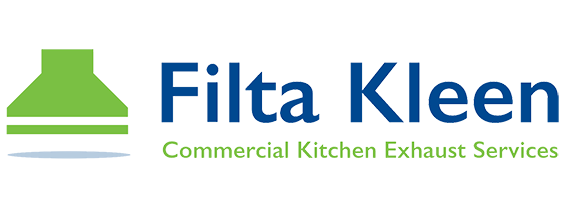The Value of a Licensed Hood Repair Technician in Commercial Kitchen Maintenance
Why Commercial Hood Repair Matters
Ventilation & Fire Safety
Commercial kitchen hood systems capture grease-laden vapors, smoke, and heat. If these systems malfunction, grease builds up in ductwork, creating a potential fire hazard that can quickly escalate. Proper repair and maintenance ensure safe cooking environments.
Regulatory Compliance
Most jurisdictions adopt NFPA 96 (Standard for Ventilation Control and Fire Protection of Commercial Cooking Operations) as the blueprint for commercial cooking exhaust systems. Failure to comply can lead to citations, fines, or even forced closures. Licensed technicians are trained to keep your hood system aligned with these codes.
Operational Efficiency
A malfunctioning or inefficient hood can lead to excess heat, smoke, and odors in the kitchen—and even higher energy bills. Routine repairs minimize downtime and improve the overall efficiency of your kitchen environment.
Services Provided by a Licensed Hood Repair Technician
-
Diagnostic Inspections
- Airflow Testing: Checking for blockages, clogs, or fan issues that hamper proper air circulation.
- Grease Buildup Assessments: Identifying areas prone to grease accumulation and recommending preventive solutions.
-
Ventilation System Repairs
- Duct Repair & Sealing: Fixing leaks or gaps that allow grease to escape and accumulate on outside surfaces.
- Fan Replacement or Repair: Restoring ventilation performance by repairing or installing upblast exhaust fans and ensuring proper hinge mechanisms for easier maintenance.
-
Filter & Hood Component Replacement
- Baffle or Mesh Filters: Checking and replacing damaged filters to maintain adequate grease trapping and airflow.
- Lighting & Switches: Ensuring all electrical components associated with the hood system are functional and safe.
-
Fire Suppression System Checks
- Nozzle Alignment: Verifying suppression nozzles are correctly aimed toward cooking surfaces and cleaning them of any grease obstructions.
- Linkage & Control Box Testing: Inspecting the system’s activation points to ensure it deploys correctly in emergencies.
-
Preventive Maintenance Plans
- Scheduled Cleanings: Coordinating professional hood cleaning at intervals aligned with cooking volume and local codes.
- Routine Check-Ups: Identifying wear-and-tear before it becomes a serious (and costly) problem.
Why It’s Important to Hire a Licensed Technician
-
Code Knowledge & Expertise
Licensed hood repair technicians receive specialized training on codes like NFPA 96. This expertise helps avoid legal complications and ensures you meet insurance requirements. -
Safety Assurance
Dealing with high heat, grease, and complex mechanical systems can be dangerous. Licensed professionals follow strict safety protocols to minimize hazards to staff and property. -
Quality of Work & Long-Term Savings
While hiring an unlicensed technician may seem cheaper initially, cutting corners often leads to repeated breakdowns or overlooked issues. A licensed pro ensures repairs are done right the first time, saving you money in the long run. -
Proper Documentation
Regulatory inspections often require proof of professional service and certification. Licensed technicians provide paperwork confirming compliance with local and national standards. -
Insurance & Liability Protection
Many insurance policies require that commercial kitchen repairs be performed by licensed, insured professionals. Failure to do so might invalidate your coverage if an incident occurs.
How to Identify a Licensed Hood Repair Technician
- Certifications & Credentials: Look for state or city-issued licenses, plus any additional certifications (e.g., manufacturer-specific training).
- References & Reviews: Ask other restaurants or check online testimonials to gauge the technician’s track record and customer satisfaction.
- Experience & Familiarity: A technician well-versed in various hood systems—from standard baffle setups to more complex pollution control units—can diagnose issues more accurately.
Final Thoughts
The complexity and safety considerations of commercial kitchen hoods demand regular, expert attention. A hood repair technician brings the right skills, code knowledge, and professionalism to ensure your exhaust system remains both compliant and efficient. By investing in licensed expertise, restaurant owners protect their staff, customers, and bottom line from the risks associated with poorly maintained equipment.
Whether your hood needs a simple repair, a complete overhaul, or an ongoing maintenance schedule, hiring a licensed professional is the smartest choice for safeguarding your kitchen’s operations—and keeping that grill, fryer, or pizza oven running at full throttle without interruption.
Ready to ensure your high-heat cooking and exhaust systems meet FDNY standards?
Contact Filta Kleen today for a customized compliance plan that supports the longevity of your equipment and the safety of your entire kitchen operation.


